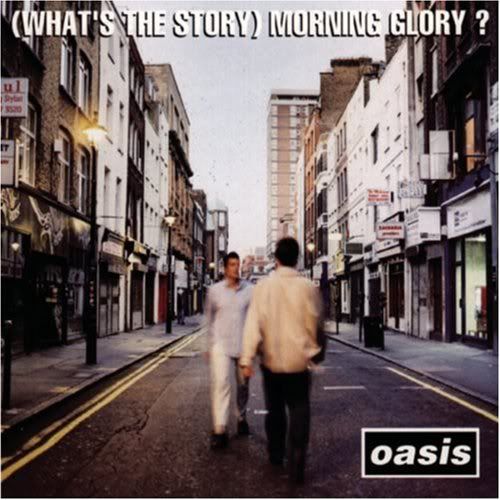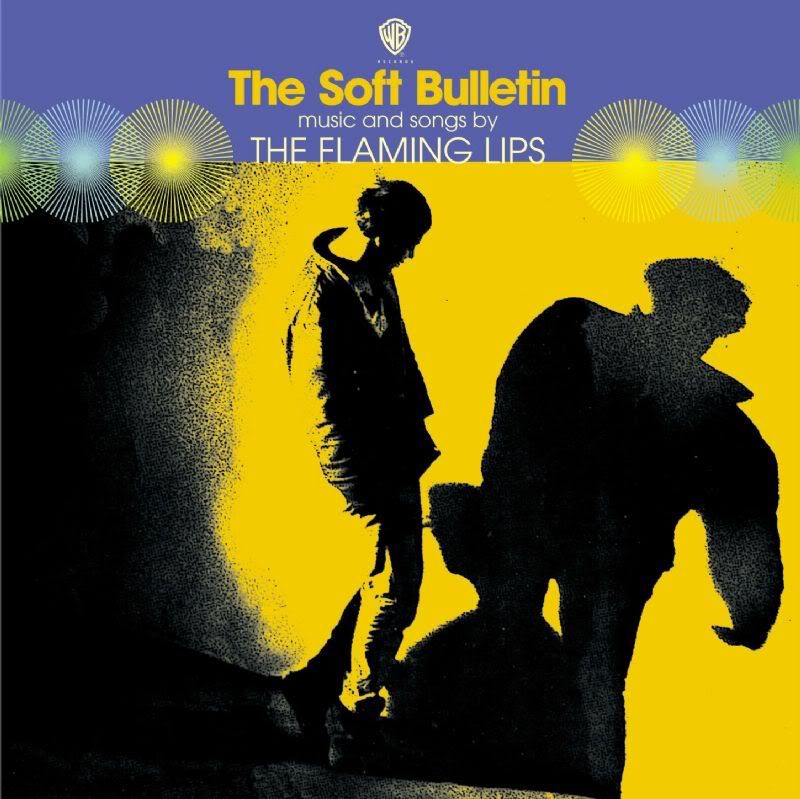
A short while ago I was asked if I would contribute a short something to the excellent
Youtune music blog, by the editor over there.
Youtune isn't just about the music but is also concerned with the author's feelings and memories associated with a particular song.
The tagline sums it up nicely: "These are your tunes, and your meanings". Told you.
It's slightly departed from my usual avenue of writing but I enjoyed it as much as any other review and you can read the entry in it's entirety below or, better still, you can visit
Youtune itself where you can peruse my entry and many others like it. ------------------------------------------------------------------------------------------------------------------------------------------------------
Originally posted on http://youtune.tumblr.com on Dec 7th 2009
A short while ago, the editor was asked me to write an entry for this blog, concerning what a specific song means to me, and what memories it holds.
Taken at face value, this doesn’t seem like an especially taxing task. Everyone has songs they love, and everyone has reasons why they love those songs, right? Well yes they do, but as I found out, there’s a difference between songs you like and songs that you form a palpable, emotional attachment with. There’s no doubt that
Rocket Man is one of Elton John’s finest moments, but do I feel genuine despair for the departing astronaut? No, not really. And as uplifting and enjoyable as it is, I’ve yet to rejoice in a loving celebration of life after listening to U2’s
Beautiful Day.
As it turned out, it took good deal of thought to arrive at my chosen song and even now I’m not sure how it makes me feel. But I do know it forms the perfect soundtrack to the memories I’ve attached to it and that every time I hear it, something inside of me stirs and I can’t help but form a tiny smile. And I guess that’s what makes it great.
Champagne Supernova is not the most complex song you’ll ever hear (the majority is just 4 chords), but that’s not why I love it.
It’s lyrics are not the most inspirational or quick-witted and sometimes don’t even make sense, but that’s not why I love it.
And it’s not even very well arranged, clocking in at well over seven minutes. But that’s not why I love it.
What I love about it is all of those things.
Before I go on, a short disclaimer. Say ‘Oasis’ to someone and they’ll either begin to discuss a popular high street clothes shop or dismiss the band as arrogant has-beens as seems to be the trend now. Well I’d like to buck that trend and I’d even go as far to say that Oasis were the most important band of the 1990s, and that
(What’s the Story) Morning Glory was the most important album.
I’m not embarrassed to say that and I’m not embarrassed to say that I think Oasis are dismissed too easily these days.
First of all, a bit of background. In 2003, I was budding ‘metalhead’ and listened to bands such as Metallica and System of a Down, and even played guitar in a metal band in my spare time. It was also about this juncture that, courtesy of my Dad’s record collection, I first heard Oasis’ second album
(What’s the Story) Morning Glory, and
Champagne Supernova. From the moment I’d started, I couldn’t stop. Every song seemed to grab me with its simplicity and no-nonsense attitude.
Fast-forward a year and the heavy rock had all but gone. Bands such as Manic Street Preachers, Coldplay and Oasis had replaced it. They all typified the straightforward and catchy rock that I had grown to love as I advanced through my early teenage years.
It just so happens that those few years were some of the best of my life and I have memories of hot summer days spent doing nothing, but doing nothing with friends. And memories of grand plans and ambitions made with no care in the world.

It’s probably fair to say that I could’ve chosen any song from
(What’s the Story)… but I chose
Champagne Supernova for a few reasons.
The first is it’s simplicity. Using just a handful of chords it manages build into a stadium-sized epic that never once becomes dull during it’s seven minute length, and it is this attitude that gives the song some of it’s emotional weight.
It’s clear that Noel Gallagher and Oasis are from the 60s school of songwriting that requires no musical knowledge, and by simply getting up there, having fun and playing what ‘sounds good’, they’ve created a feeling of being able to do anything.
And they don’t give a fuck.
Secondly, however you look at them, the lyrics make no sense together. Aside from being totally contradictory, the line “Slowly walking down the hall, faster than a cannonball” suggests walking at a speed faster than gunpowder, down an imaginary hall that bears no relevance to any line before or after. And yet it’s brilliant, because nobody understands it. Nobody is meant to understand it and most importantly, nobody wants to understand it because they don’t care.
The line, “Where were you while we were getting high?” backs this up. It defines the song as something that isn’t political or philosophical but is about having fun and as before, not giving a fuck.
Even the title suggests celebration and excitement, and I can take a good guess that Noel Gallagher had no idea what a ‘Supernova’ was.
Maybe it’s the attitude and the enjoyment I like the most but this is all made easier by the fact that
Champagne Supernova is a great song. A stadium-sized epic that has both heartfelt and soaring melodies, and is backed by huge guitars that weave between the vocals, and explode into the chorus.
I read somewhere once, an excellent description of
(What’s the Story)… that works just as well to describe
Champagne Supernova:
“It should be enjoyed at full volume, lager in hand, and in your mate’s back garden. All on the greatest English summer day imaginable.”
It sums up just what the song is about, how the song should be perceived, and most importantly, that you don’t really need to think about it at all. And that’s why I love it.
If you enjoyed this then please visit http://youtune.tumblr.com for more great entries.
 Just a quick one to inform you, my loyal readers, that I haven't forgotten about you but I've simply been busy over this Festive period.
Just a quick one to inform you, my loyal readers, that I haven't forgotten about you but I've simply been busy over this Festive period.



 It’s probably fair to say that I could’ve chosen any song from (What’s the Story)… but I chose Champagne Supernova for a few reasons.
It’s probably fair to say that I could’ve chosen any song from (What’s the Story)… but I chose Champagne Supernova for a few reasons.



